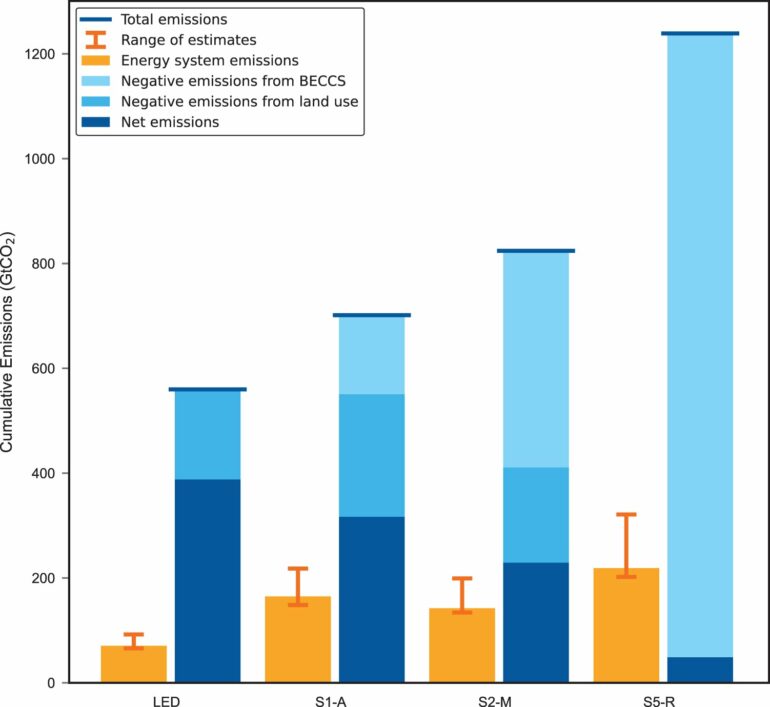A new ICTA-UAB study shows that the process of transitioning to a low-carbon energy system could lead to significant global emissions, consuming much of the remaining carbon budget, and thus leaving less emissions for socio-economic processes and activities than widely thought. The average emissions associated with a low-carbon energy transition amount to 195 gigatons of CO2, which equals approximately 0.1 °C of additional global warming.
These are the conclusions of a scientific study by the Institute of Environmental Science and Technology of the Universitat Autònoma de Barcelona (ICTA-UAB) and the University of Leeds conducted by researchers Aljoša Slameršak, Giorgos Kallis, and Daniel O’Neill, and published in Nature Communications.
The authors show that while the energy emissions associated with decarbonization are significant, the benefits of decarbonization still far outweigh the costs. The faster economies can decarbonize and reduce energy use, the better.
“Although the existing IPCC literature provides a range of emissions pathways compatible with 1.5 °C of global warming, it has so far remained unclear how much of these emissions will be tied to the transition, and how much of the emissions will remain for societal activities, such as transportation,” says Aljoša Slameršak, ICTA-UAB researcher and lead author of the study.
He stresses that “emissions associated with the transition are substantial. However, the overall climate impact of these emissions is still small compared to the emissions avoided by rapid climate action over the long term. The main problem is not the climate impacts of the transition, but the impacts of inaction given how close to overshooting 1.5 °C we currently are.”
A low-carbon energy transition will require major investments, not only financially, but also in terms of energy and materials. The global economy is still dependent on fossil fuels and the transition itself may become a significant source of emissions. In this study, the researchers calculate that the emissions associated with the transition range from 70 GtCO2 to 395 GtCO2, which roughly corresponds to 2‒11 times of the world’s total emissions in 2021.
Co-author Giorgos Kallis, also from ICTA-UAB, explains that “not all scenarios of a low-carbon energy transition are alike. Scenarios with low energy use and lots of renewable energy have much lower emissions associated with the transition. Other scenarios, however, that continue relying on fossil fuels, in the hope of sucking carbon out of the atmosphere later in this century, have a lot of emissions linked to the transition.”
Kallis points out that, if governments are serious about tackling climate change, they should prioritize the reduction of energy use. “Relying on unproven solutions such as so-called ‘negative emissions’ is a risky strategy, not only because of the emissions that they themselves will cause.”
In contrast to what has been argued in previous studies, the authors find that a low-carbon energy transition would not necessarily reduce the efficiency of energy provisioning. Energy system efficiency declines in scenarios that rely on biofuels and fossil fuels with carbon capture and storage but remains stable or even increases in scenarios that push for renewable energy.
Co-author Daniel O’Neill, from the University of Leeds, concluded, “Our study shows that any viable pathway for avoiding dangerous climate change requires a decrease in energy use during the initial push for the transition. Continued growth in energy consumption is simply incompatible with the goal of a safe climate.”
More information:
Aljoša Slameršak et al, Energy requirements and carbon emissions for a low-carbon energy transition, Nature Communications (2022). DOI: 10.1038/s41467-022-33976-5
Provided by
Autonomous University of Barcelona
Citation:
A low-carbon energy transition may result in substantial emissions (2022, November 18)



